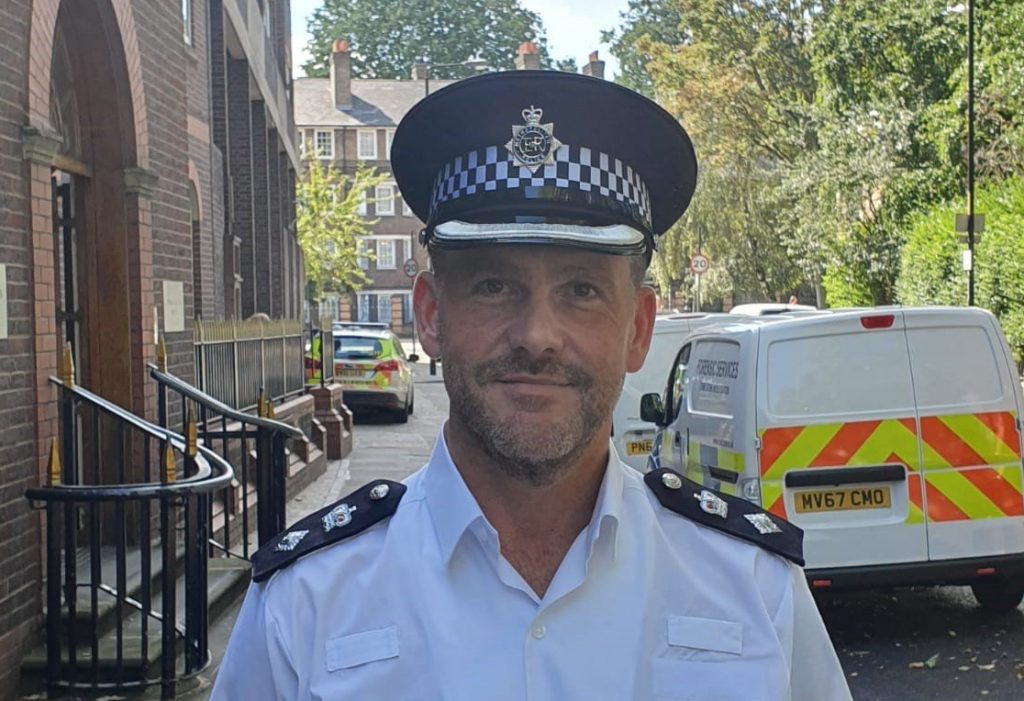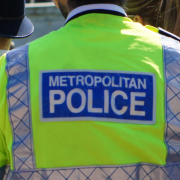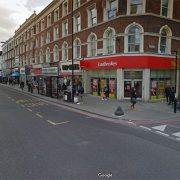
Police in Tower Hamlets are determined to reduce anti-social behaviour in the borough and committed to helping drive out the unprofessional culture that persists in pockets of the wider force, the borough’s police commander told councillors this week.
Detective Chief Superintendent Marcus Barnett said he was confident in the force’s ability to reduce offences in the borough. “I am absolutely determined that we will continue to drive [anti-social behaviour] down in Tower Hamlets because that’s what the residents deserve.”
Barnett, the Metropolitan Police commander for both Tower Hamlets and Hackney boroughs, was speaking at the meeting of the council’s overview and scrutiny to outline the priorities of Tower Hamlets police.
He highlighted continuing prevention methods such as intervention letters, home visits, criminal behaviour orders, and the deployment of anti-social behaviour patrol cars, to tackle issues important to local people. “We have had, since July of last year to December of last year, a 50 percent reduction in the calls we had around anti-social behaviour.”
Barnett said that one of the reasons for the borough’s progress in deterring offences of this kind is the cooperation between the public and the police. “We are absolutely determined that the residents of Tower Hamlets are able to come to us and report anti-social behaviour.”
He also defended Section-60s, more commonly known as ‘stop and searches’, which have faced criticism for damaging relations between the public and police, and being used disproportionately against ethnic minority groups. “Stop and search as a policing tool and tactic is something I absolutely support…because it does brilliant things when done well to reduce crime.”
However, Barnett said proper training and proportionate use is required by the force.
“It must be done proportionately…what we have done over the last year is worked really hard around our training of officers in the use of handcuffing when it comes to stop and searches, understanding culture and communities more, and working really closely around ensuring compliance with body-worn videos…so we know we are getting it right.”
Barnett was questioned by councillors on the police’s efforts in reducing sexual violence in the borough, and the impact of the loss of trust in the police that hinders the reporting of sexual offences.
Councillor for Lansbury Ward, Bex White asked the commander about the culture within the police force that perpetuates violence against women and girls.
White said that for many women in London, there is “a map of where you can and can’t go…you almost forget because you are so used to it.”
She added: “Women in Tower Hamlets [have] seen headline after headline about the culture in the police…that can be very frightening because that’s who you’d call on for help.”
Barnett said he was “embarrassed” and “ashamed” when he heard of unprofessional behaviour such as this in the force, and he went onto admit that “trust and confidence has been dented. He outlined various projects the Metropolitan Police is organising to tackle discriminatory behaviour of all forms in the force, such as ‘Not In My Met’. He said: “There is no place” in the Met for officers that perpetuate or contribute to unprofessional and harmful behaviour.
“We are running a significant campaign throughout the organisation to increase levels of standards, understanding, values, and codes of ethics…that is what the public expects.”
“We are deliberately driving our efforts to improve the culture of the Met…it’s so we are the best that we can be when we get on the streets to police, to look after our communities because that’s what you all deserve.”




